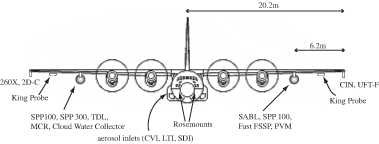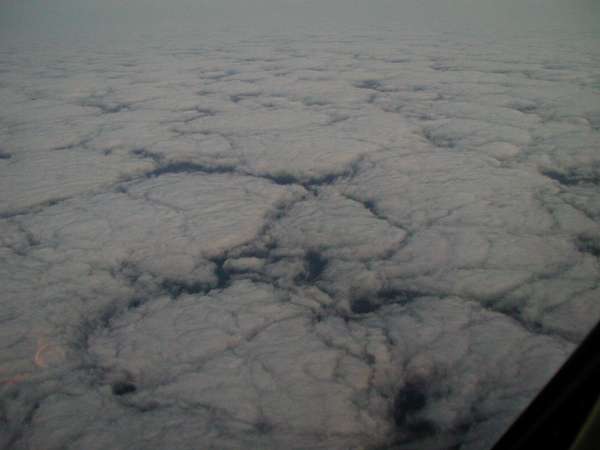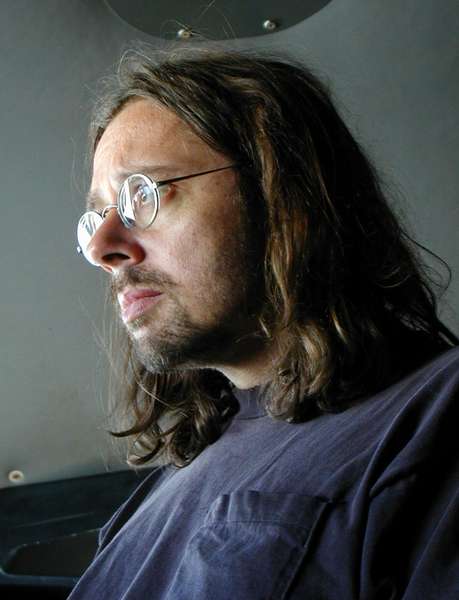DYCOMS-II
Dynamics and Chemistry of Marine Stratocumulus Phase II
The Second Dynamics and Chemistry of Marine Stratocumulus field study (DYCOMS-II) was conducted from 7-28 July 2001 off of the coast of Southern California. It was designed to take measurements in the marine stratocumulus region to help scientists unravel the mysteries of this important cloud regime.
|
DYCOMS-II target area (planned - rectangle; actual - rhomboid) over TMI SST.
(Click Image for Full Resolution) |
Scientific Objectives
DYCOMS-II was specifically designed to provide:
- a suite of test cases for subsequent simulation;
- tests of LES derived entrainment parameterizations.
Secondary objectives included:
- testing a new technique to measure large-scale divergence;
- increasing our understanding of the diurnal cycle;
- quantifying precipitation and its effect on cloud structure;
- evaluating aerosol effects on precipitation and clouds.
Flights and Instrumentation
For DYCOMS-II the NSF/NCAR C-130 aircraft conducted nine research flights during July 2001 to the WSW of Los Angeles, CA, in the heart of the stratocumulus region of the NE Pacific. The aircraft conducted two basic flight patterns: entrainment and radar flight patters. Instrumentation aboard the C-130 included:
- State parameter instrumentation
- Trace gas measurements (CO2, CO, O3, and DMS)
- Microphyics inlets and probes
- Radial Differential Mobility Analyzer (RDMA)
- Scanning Aerosol Backscatter Lidar (SABL)
- Wyoming Cloud Radar (WCR)
- Multichannel Cloud Radiometer (MCR)
- GPS Dropsondes
(Click Image for Full Resolution)
Supporting Datasets
In addition to the datasets derived from the C-130 instrumentation a variety of supporting data sets were collected for the DYCOMS-II region. These included:
- GOES Imager/Sounder satellite
- NOAA POES satellite
- DMSP satellite
- QuikSCAT satellite
- TRMM satellite
- Terra MODIS
- Surface meteorology
- Radiosonde and Profiler data
- COAMPS, ECMWF, and NCEP Model products
|
Stratocumulus observed from the C-130 (Courtesy: Gabor Vali)
(Click Image for Full Resolution) |
Bjorn Stevens (courtesy Gabor Vali).
(Click Image for Full Resolution) |
All photos copyright University Corporation for Atmospheric Research unless otherwise noted.



